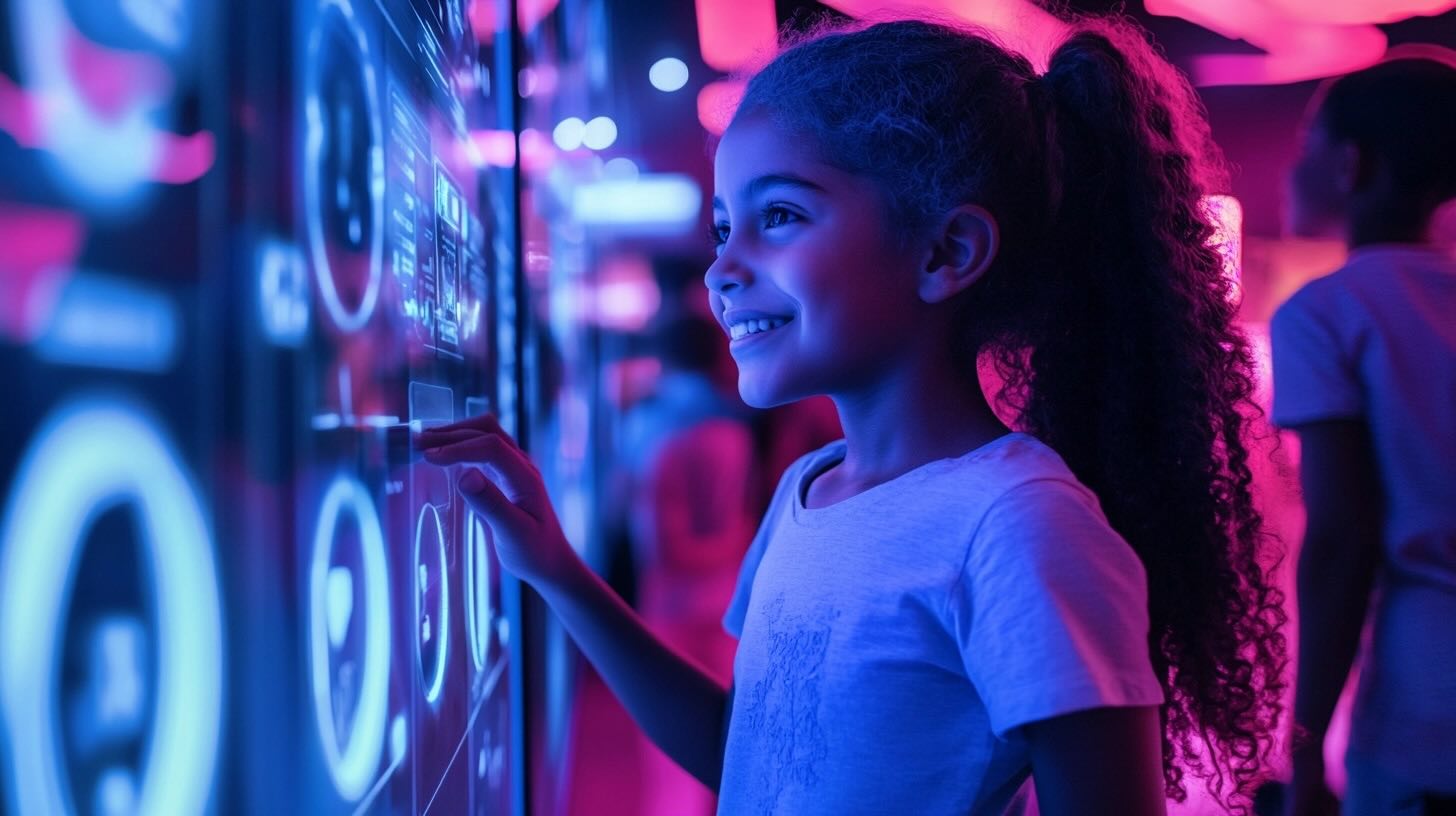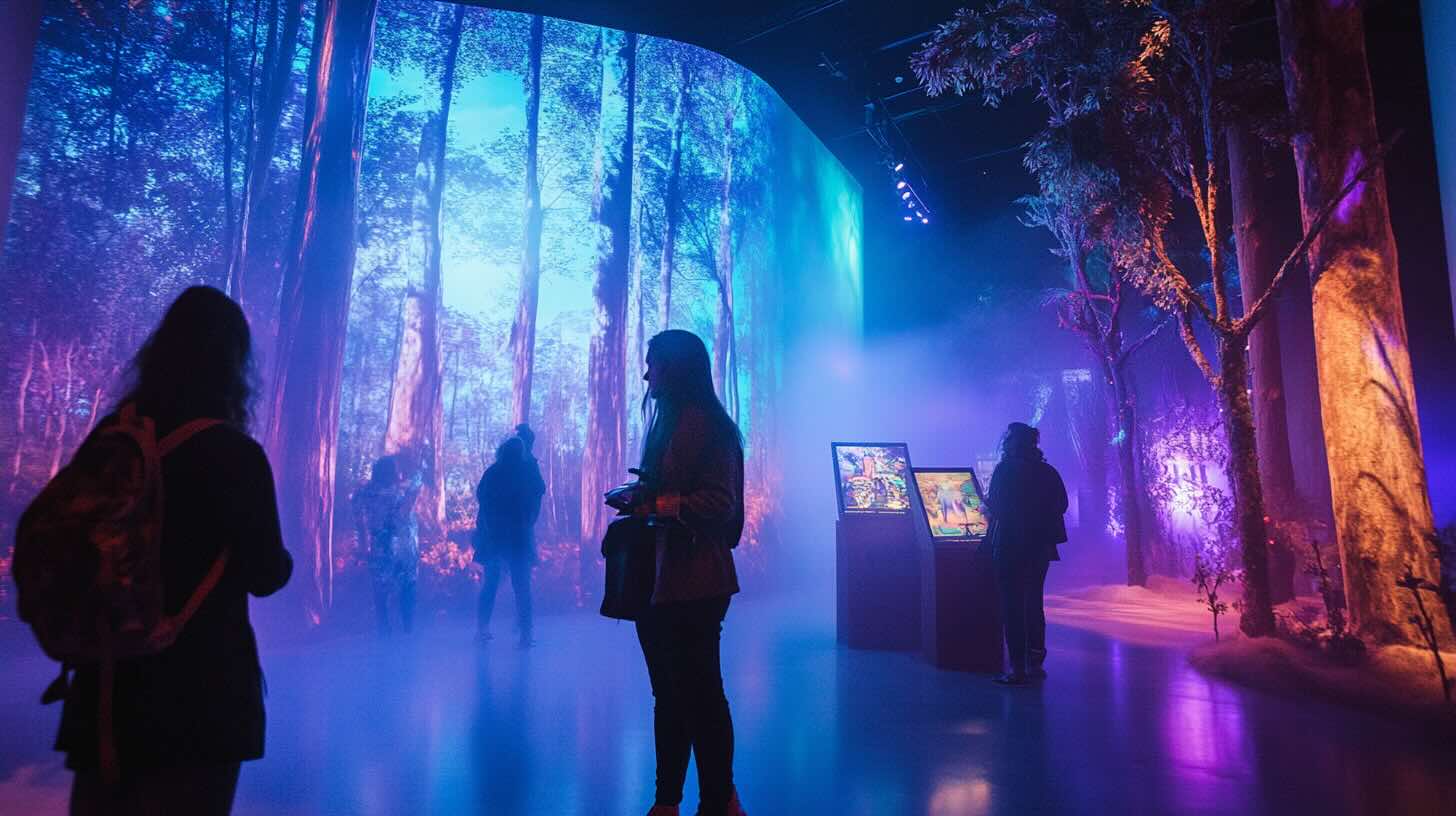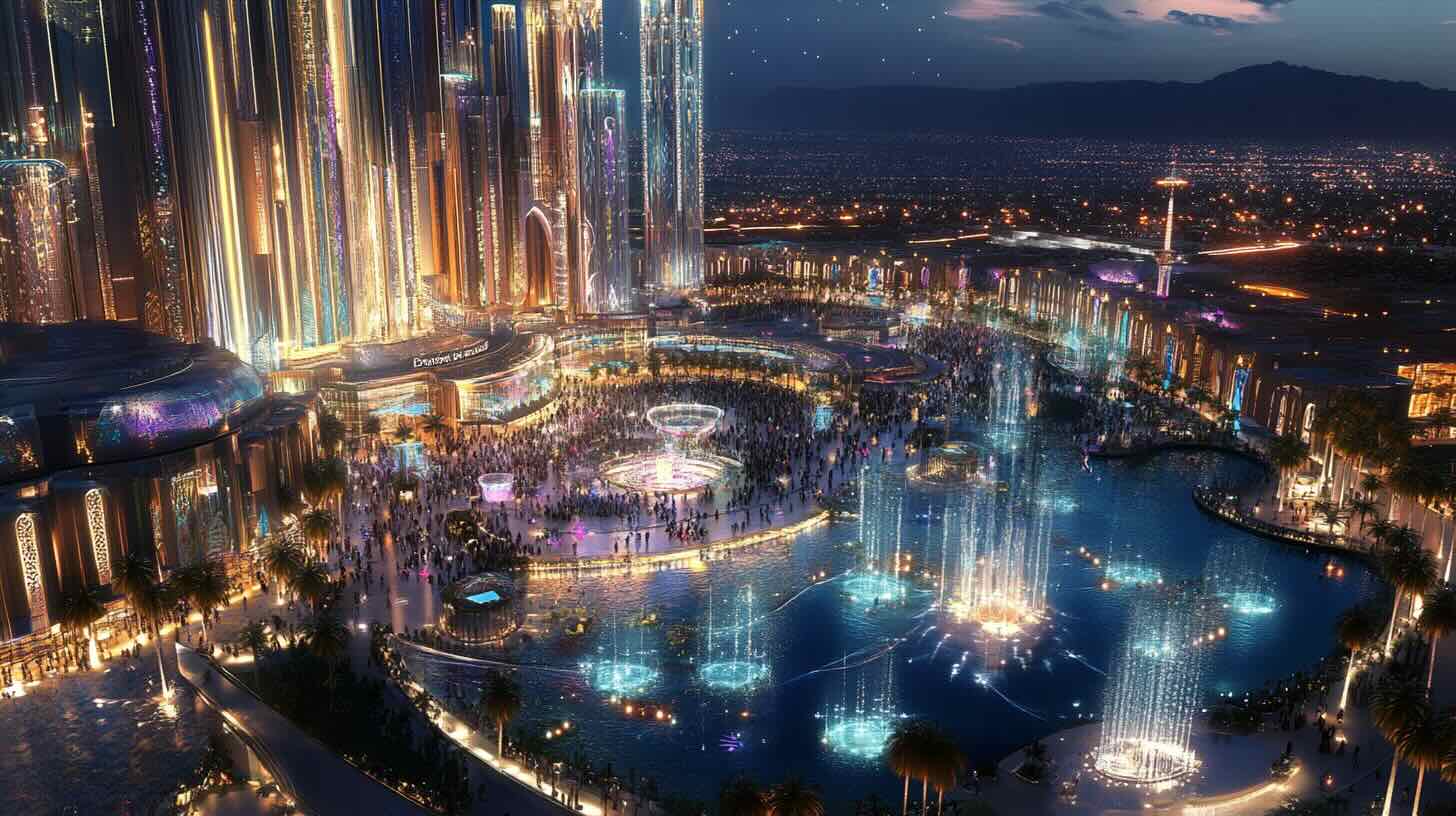Entertainment Industry Trends 2025: What’s Shaping the Future of Experience
The entertainment industry trends 2025 are shaping up to redefine how we experience leisure, culture, and storytelling. From personalized digital journeys to the rise of immersive environments, the industry is undergoing a rapid transformation driven by technology, shifting demographics, and new consumer expectations. These changes go beyond traditional formats, forcing operators, designers, and developers to innovate in real time and think holistically about the future of engagement.

Table of Contents
Entertainment Industry Trends 2025: What’s Shaping the Future of Experience
The entertainment industry trends 2025 are shaping up to redefine how we experience leisure, culture, and storytelling. From personalized digital journeys to the rise of immersive environments, the industry is undergoing a rapid transformation driven by technology, shifting demographics, and new consumer expectations. These changes go beyond traditional formats, forcing operators, designers, and developers to innovate in real time and think holistically about the future of engagement.
Immersive Experiences Are Redefining Guest Expectations
In 2025, audiences no longer want to be passive spectators—they want to step into the story. The evolution from storytelling to “story-living” is one of the most prominent entertainment industry trends. Instead of linear narratives, attractions now invite guests to shape their own experience, often guided by adaptive technology that reacts in real time to user behavior.
These immersive formats—powered by projection mapping, real-time audio design, and sensory environments—are being integrated not only into theme parks but also into retail spaces, museums and cultural experiences, and hospitality venues. What used to be a ride or a show is now a fully immersive, personalized environment that fosters deeper emotional connections.
From our perspective at ICM, the most successful attractions are those that fuse emotional storytelling with interactive systems. We’ve seen firsthand how blending local culture with digital immersion turns a space into a destination—not just a visit.
The Shift Toward Personalization and AI-Driven Engagement
Personalization continues to dominate entertainment industry trends in 2025. Audiences expect experiences to adapt to them—not the other way around. Artificial Intelligence now plays a crucial role, offering dynamic itinerary planning, real-time attraction adjustments, and tailored content recommendations.
Guests can receive notifications about upcoming shows based on their interests, get dining suggestions synced with their dietary preferences, or be guided through a park using geolocation and behavioral data. These AI agents are designed to enhance—not replace—the human touch. They allow brands to deliver a seamless, customized journey from pre-visit to post-visit.
This trend is especially powerful in large-scale destinations, where the sheer volume of choices can overwhelm guests. With smart personalization, guests engage more deeply, spend more time onsite, and leave with stronger emotional connections—fueling both satisfaction and brand loyalty.

How Technology Is Reshaping Entertainment Spaces
One of the most critical entertainment industry trends 2025 is the integration of technology not as a layer but as a foundation. Augmented reality (AR), virtual reality (VR), real-time interactivity, and gamification are no longer future-facing add-ons—they are now core design elements.
Gamified experiences are turning queues into attractions themselves, with mobile games, interactive screens, and storytelling challenges that start long before guests reach the ride. VR and AR applications allow guests to explore environments, solve mysteries, or unlock digital characters, enhancing engagement throughout the journey.
Modern venues must integrate real-time interactivity into their next-generation rides and attractions to create layered experiences that blend physical motion with digital immersion. From our own ICM developments, we’ve seen a clear pattern: tech-driven interactivity boosts dwell time and encourages return visits. The more responsive and integrated the environment is, the more memorable the experience becomes.
From Storytelling to Story-Living: A New Entertainment Standard
The era of watching a story unfold is being replaced by the era of living it. In 2025, entertainment is defined by agency and immersion. Guests are not only invited into the narrative but are given tools to interact, change, and even direct the outcome.
This trend affects not only content but also space planning and architecture. Layouts must allow for flexible movement, choice-driven navigation, and reactive design. Lighting, sound, and scent are no longer decorative—they are essential tools to shape emotion in real time.
One of the strongest indicators of this shift is the increase in multisensory design. Whether walking through a rainforest recreated with fog and scent dispersal or experiencing a historical scene through AR overlays, audiences now expect entertainment to surround them entirely.

Integrated Experiences: Hospitality, Lodging, and Entertainment in One
Among the top entertainment industry trends 2025 is the seamless integration of hospitality and entertainment. Rather than designing separate spaces, resorts, parks, and destinations are now creating ecosystems that blend hotels, dining, retail, and immersive attractions into a single guest journey.
Visitors today seek integrated themed resort destinations that seamlessly combine accommodation, entertainment, and cultural immersion in one cohesive guest experience. Extended stays become more appealing when entertainment is part of the accommodation. Imagine watching marine life from your hotel room or stepping from your suite into a digital forest filled with storytelling and games.
The entertainment landscape also includes immersive water parks that incorporate themed environments, interactive features, and relaxation zones into a single aquatic adventure. At ICM, we’ve championed this integration in several of our resort projects. The line between rest and entertainment is fading—and that’s a good thing.
Market Shifts: Gen Z, Mobile Behavior, and Digital Native Expectations
By 2025, the dominant market segments are digital natives. Gen Z and Gen Alpha expect instant gratification, mobile-first interaction, and social media integration baked into every experience. The average person checks their phone every seven minutes, and the entertainment industry has adapted accordingly.
One of the strongest trends is mobile-driven gamification and real-time sharing. Attractions now offer AR photo opportunities, QR-linked storytelling paths, and in-app rewards for interacting with content. The result? Visitors who feel both engaged and empowered, eager to post, share, and come back.
Equally important is inclusivity. With global audiences and growing expat communities, successful attractions must offer multilingual support, customizable experiences, and adaptive signage. Cultural fluency is not optional—it’s expected.
Operational Excellence Through Data and Guest Insight
In 2025, operational success is driven by analytics and adaptability. Entertainment providers must use data to understand visitor behavior, adjust in real time, and constantly refine their offerings.
Dynamic pricing models, AI-enhanced crowd management, and real-time satisfaction monitoring are now standard tools for high-performing venues. But tech alone isn’t enough—human insight remains essential. The most effective operations blend efficiency with warmth, ensuring that technology never overshadows hospitality.
Projects designed with ICM’s turnkey process ensure operational efficiency, guest satisfaction, and long-term flexibility from concept through execution.
Spotlight on Saudi Arabia: A New Powerhouse in Entertainment
No discussion of entertainment industry trends 2025 would be complete without mentioning the massive investment underway in Saudi Arabia. With a young, tech-savvy population and government-backed initiatives like Vision 2030, the region is rapidly becoming a global hub for immersive entertainment.
Projects like Qiddiya, New Murabba, and King Salman Park are redefining what large-scale entertainment destinations can be—fusing digital storytelling, cultural heritage, and next-gen hospitality. For industry leaders, this market is more than an opportunity—it’s a proving ground for the future of global entertainment. And it’s one we at ICM are closely following.
Conclusion: The Next Chapter in Entertainment Starts Now
The entertainment industry trends 2025 signal a bold new era where storytelling, technology, and personalization converge to create unforgettable experiences. Success now depends on understanding shifting audiences, leveraging real-time data, and designing environments where people can not only be entertained—but transformed.
From immersive design and mobile-first strategies to AI-powered personalization and integrated hospitality, the industry is evolving fast—and those who embrace this evolution will lead the next generation of entertainment worldwide.
FAQs – Entertainment Industry Trends 2025
What are the top entertainment industry trends in 2025?
- Immersive design, personalization, mobile integration, AI-powered planning, and story-living experiences define the year’s key shifts.
How is AI impacting the entertainment industry in 2025?
- It allows for personalized recommendations, itinerary planning, crowd management, and adaptive content—all in real time.
Why is “story-living” replacing traditional storytelling?
- Because audiences want interaction and agency. They expect to shape their experience, not just observe it.
What role does mobile technology play in entertainment design?
- It supports digital engagement, gamification, sharing, and enhances every phase of the guest journey.
Which regions are leading in entertainment innovation?
- Saudi Arabia is emerging as a global leader, with large-scale, tech-driven developments transforming the Middle Eastern market.

